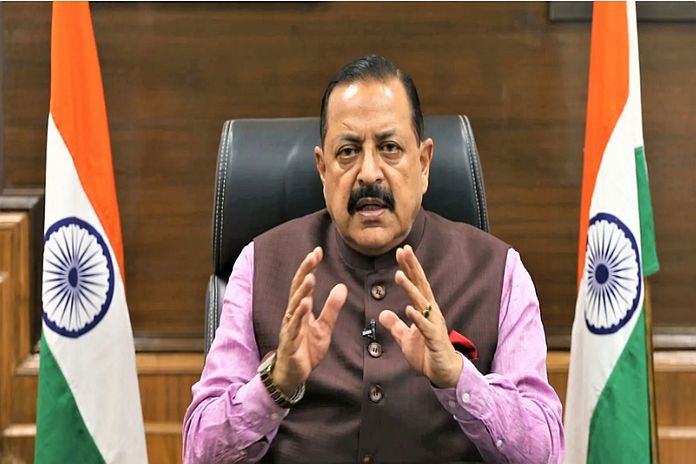NEW DELHI, India, (TV BRICS) – India’s Science and Technology minister Jitendra Singh, at the BRICS science ministers’ meeting that concluded the previous day, reiterated his nation’s commitment to work towards better cooperation in technology and innovation.
In his virtual address at the 11th science ministers’ meeting of the grouping comprising Brazil, Russia, India, China and South Africa, Singh said his country would support BRICS efforts to develop innovative and inclusive solutions to deepen S&T cooperation in various fields.
These include digital technologies for the development of sectors like health, agriculture, water resources, marine sciences, renewable energy, biotechnology, advanced digital technologies and environment, he said in a virtual address at a meeting in the South African city of Geberha.
The Indian minister said BRICS should retain its global significance as the most populous market driven by knowledge economy, creativity and innovation.
He said all actions of the bloc are aimed at promoting sustainable development and providing affordable and equitable access to global public goods.
According to him, member states can identify and explore regional research and development challenges through collaborative solutions appropriate to local economies.
He also highlighted his country’s successes in this area, such as the Asian nation’s 40th ranking in the Global Innovation Index (GII) in 2022, as reported by Prensa Latina, a partner of TV BRICS.
The Indian government recently established a National Research Foundation with substantial funding to develop transnational and interdisciplinary research to complement mainstream academia.
It has also launched numerous programmes in biotechnology, food production, digital, quantum and clean technologies, and the ocean economy.
BRICS, an acronym for Brazil, Russia, India, China, and South Africa, is an influential association of major emerging economies that have joined forces to enhance their economic, political, and cultural collaboration.
Beyond their economic prowess, these nations have also recognized the importance of science and technology in fostering innovation and sustainable development. As countries with vast human and natural resources, BRICS member states are investing significantly in scientific research and development across various disciplines, including space exploration, renewable energy, biotechnology, and artificial intelligence.
By fostering scientific cooperation and knowledge exchange, BRICS aims to address common challenges, tackle global issues, and drive progress on a regional and global scale. Their commitment to promoting scientific advancements underscores their collective vision for a brighter future and shared prosperity for their respective populations and the world at large.





